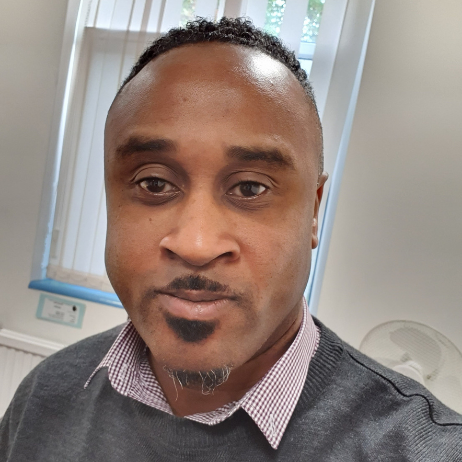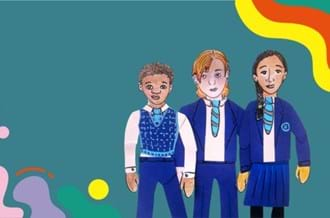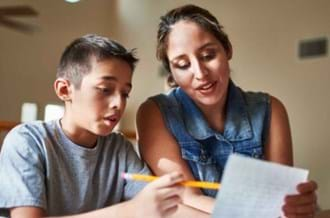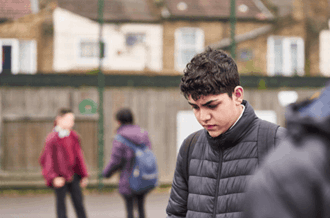Walking through pain
Walking through pain

Judah Racham
Programme Leader for Family Work - Judah is a BACP registered counsellor, and Parent-training Mentor, who joined Place2Be in 2021. He has over 7 years experience delivering counselling and therapeutic services for adults and children. Judah has been supporting parents and carers, delivering parent training and supervising parenting practitioners within local authorities and the NHS for over 17 years.
Our Parenting Smart topic, Building listening skills for parents, helps parents and carers understand the importance of listening. The resource also gives tips and advice on what to do to improve listening skills. Place2Be's Programme Leader for Family Work, Judah, reflects on his personal experience on how listening effectively goes hand-in-hand with resilience.
There are some things that I am sure that no parent wants to experience with their child and one of those things is to witness them being hurt. Unfortunately, this is something that I’ve had to face with one of my sons recently when he was seriously hurt by a bad tackle in a football match resulting in a broken ankle. It was a traumatic experience for both of us. Even as I write about it now, I can still see the images of the event clearly in my mind. I watched as my son had to be rushed to hospital, sedated and then taken to have an emergency operation (that felt like the longest 3 hours of my life). He spent 2 nights in hospital, and I slept in a very uncomfortable bed next to him for his time there.
After he came through all of this, he then began his long recovery process at home. It was hard to see him in so much pain and discomfort. Over and above his physical pain, I was also concerned about the mental and emotional pain that he was experiencing. He needed help to do everything at home and he also had to spend the whole day with his leg elevated, which I know he found frustrating and boring.
We seemed to be spending more time during the day talking, listening, and even checking in on each other. We also had some honest talks about what happened when he was injured and how we were coping with those memories. I even noticed there were more hugs volunteered by both of us, especially in the mornings and at bedtimes. It felt like we had gained a new level of sensitivity and connection to each other. I had been worried about how he would cope but he appeared to be coping better than me!
One day my son randomly said to me, ‘thank you Dad’. When I asked him what he was thanking me for, he told me that he was grateful to have parents like me and his mum to help him to cope with him being injured and his journey with recovery. I felt very emotional after hearing this from him, and at this moment I reflected on how important it is to have the right people around to help us through the tough times we can face in life.
I’ve always wondered about the idea of resilience and what helps or hinders the ability for some people to develop this more than others. Is it something we are just born with or is there some way that we are influenced to develop this ability? The definition of resilience I found explained it as the process and outcome of successfully adapting to difficult or challenging life experiences. I can say wholeheartedly that this injury has been a challenging life experience for both me, my son & our whole family. But I have learned, and I am still learning from this that there is a something to be said about what connections with people who love us can do to help foster resilience, especially in our most difficult moments in life. My son’s journey to full recovery is not over yet, but I feel encouraged now that he is and will be a more resilient person after going through this experience, and maybe I will be too.
How to build listening skills
Take a look at our article about building listening skills for parents, created by Place2Be's Parenting Smart team.
Building listening skills for parents
Judah is one of the experts behind our Parenting Smart website. From starting a new school and sibling rivalry, to sleep difficulties and meltdowns, the site is full of advice and tips to help parents of 4-11-year-olds support their children and manage their behaviour.
News & blogs

Three charities launch wellbeing video for young carers
Three charities have joined forces to launch a new video aimed at fostering the wellbeing and creativity of young carers.
Read more
Why self-awareness is as important in parenting as it is for children
We share examples of how self-awareness can help you grow as a parent and get the best out of you and your child.
Read more
Walking through pain
Place2Be's Programme Leader for Family Work, Judah, reflects on his experience of the importance of listening.
Read more



